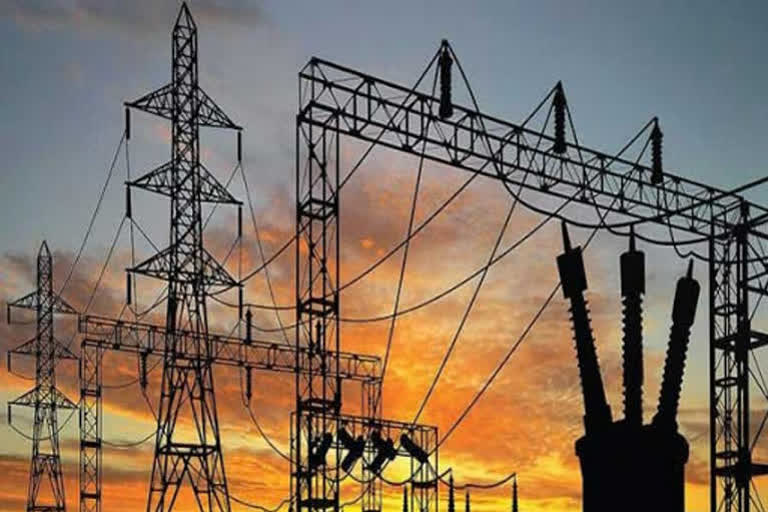New Delhi: The Union government’s new electricity bill is expected to fundamentally alter the country’s electricity sector as it seeks to assign more power to the Centre in fixing the tariff, enforcing the contracts and regulating the subsidy structure prevalent in the states that have led to weak finances of several state power distribution companies.
The draft of Electricity Amendment Bill 2020 has evoked a strong response from several states like Tamil Nadu while it enjoys support from some other quarters including former power secretary P Uma Shankar and economist and author Mohan Guruswamy.
The new bill will assign more power to the Centre in recommending the names of office bearers of key regulatory and appellate bodies in the power sector, both at the centre and state level.
“States can argue that their powers have been taken away but it is also true that states have delayed the appointments so much so that the State Electricity Regulatory Commission became dysfunctional,” said former power secretary P Uma Shankar.
The former bureaucrat, who was at the helm of policymaking for the country’s power sector during the second term of Prime Minister Dr Manmohan Singh, also questioned the selection criteria at the state level.
“The commissions have not been functioning independently, for example, if the tariffs were to be raised then they always looked at the state bureaucracy,” said P Uma Shankar adding, "Probably that is why the Central government wants to recommend the names."
He said under the proposed law, appointments will take place in a timely manner and new office bearers will be able to work in a far more neutral and freer manner.
“It will have a positive impact on the tariff revisions because it is one of the biggest problems of the state discoms. The neutrality of the person will be far more,” he noted.
However, constitutional experts like former Supreme Court justice Madan B Lokur caution against the concentration of too much power in the hands of the selection committee.
Section 78 of the Bill proposes the constitution of a selection committee for recommending the names of members of the appellate tribunal, central and state commissions, joint commissions and also the names of members of the proposed contract enforcement authority.
The five-member body will have a sitting or retired judge of the Supreme Court of India who will be nominated by the Chief Justice of India, two secretaries from the Union government, and also chief secretaries from two states.
“The recent controversies in the appointment of judges suggest that the recommendations of the Selection Committee will also cause controversies unless a clear procedure is announced,” said Lokur.
“It is not clear if the recommendations of the Selection Committee will always be accepted and if not, what are the grounds for rejection,” he told ETV Bharat.
New contract enforcement authority (ECEA)
One of the main features of the proposed bill is to create a new authority to enforce agreements in the electricity sector. However, experts like former power secretary P Uma Shankar, are not convinced.
“One more authority will lead to a multiplicity of authority. I don't think it is required,” he said, explaining that if the enforcement of contracts in the power sector was an issue then this could have been addressed by tweaking the present act.
“It may also lead to difficulty in understanding the powers of different authorities. I don't think it is called for,” he observed.
Controversy over subsidies
Last week, Tamil Nadu chief minister E. K. Palaniswamy wrote a letter to Prime Minister Narendra Modi, asking him to put the electricity amendment bill on hold as it requires more consultation.
According to reports, in his letter, EK Palaniswamy said Tamil Nadu was committed to providing free electricity to its farmers and the provisions of the new bill will affect this policy.
However, former power secretary P Uma Shankar said the proposed bill would not take away the power of states to give subsidy.
“Now what is proposed is that the subsidy will not be taken into account while fixing the tariff, if the states want to pay a subsidy of Rs 3 per unit to farmers then they can pay it directly but the tariff for agriculture will not be made zero,” he told ETV Bharat.
“This is a very good idea,” he noted.
A view that echoes in the views of Mohan Guruswamy, Chairman & Founder of Centre for Policy Alternatives and former advisor to the Finance Minister in 1998.
“They distribute it (electricity) for free. You can't keep distributing electricity for free and not collect any bills from anybody,” Mohan Guruswamy told ETV Bharat.
Controversy over renewable power purchase obligations
Some states have opposed the obligations to purchase renewable power that may be costlier and affect the finances of their power distribution companies.
“On the one hand, the Centre feels that RPO (renewable power obligation) targets have not been complied with and on the other hand states feel that steep RPO targets will lead to the financial losses of their power distribution companies,” P Uma Shankar told ETV Bharat.
Mohan Guruswamy also rejects the opposition by some states to procure more renewable power saying there was no merit in such logic.
“It is true that renewable power costs more but it has benefits to the environment that can't be quantified and it also reduces the dependence on coal,” he said.
“Coal is polluting the air and we have given our commitments under the Paris agreement. Clean energy will cost more but there are untold benefits,” Guruswamy told ETV Bharat.
“I would say that the difficulty is on both sides and the best fit has to be found,” said former power secretary P Uma Shankar while underscoring the need to strike a balance between the need to promote clean energy while protecting the state finances.
ALSO READ: PM’s conference over COVID-19: Which CM said what?




